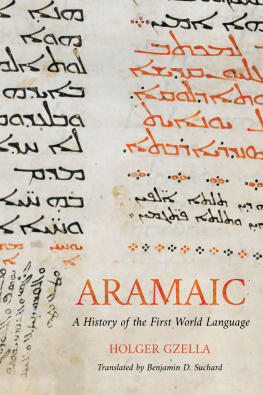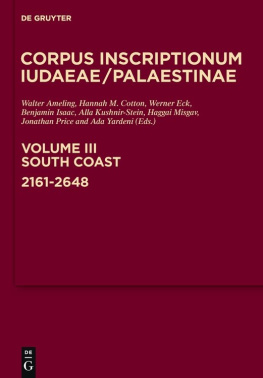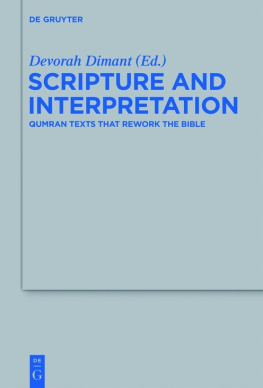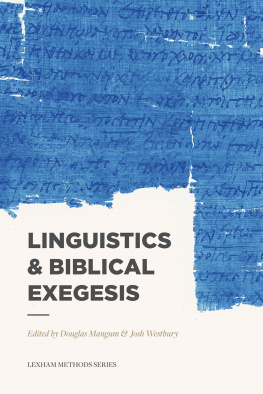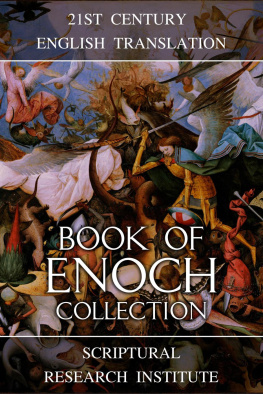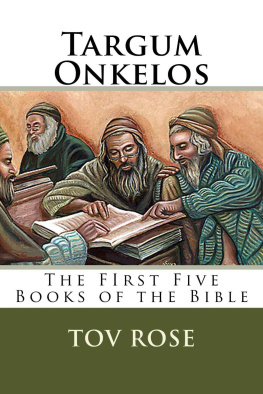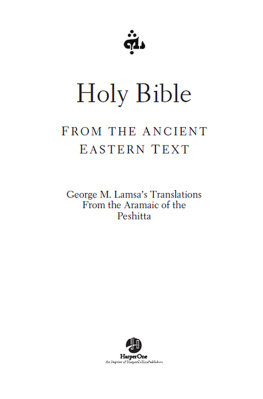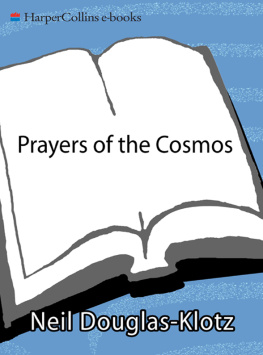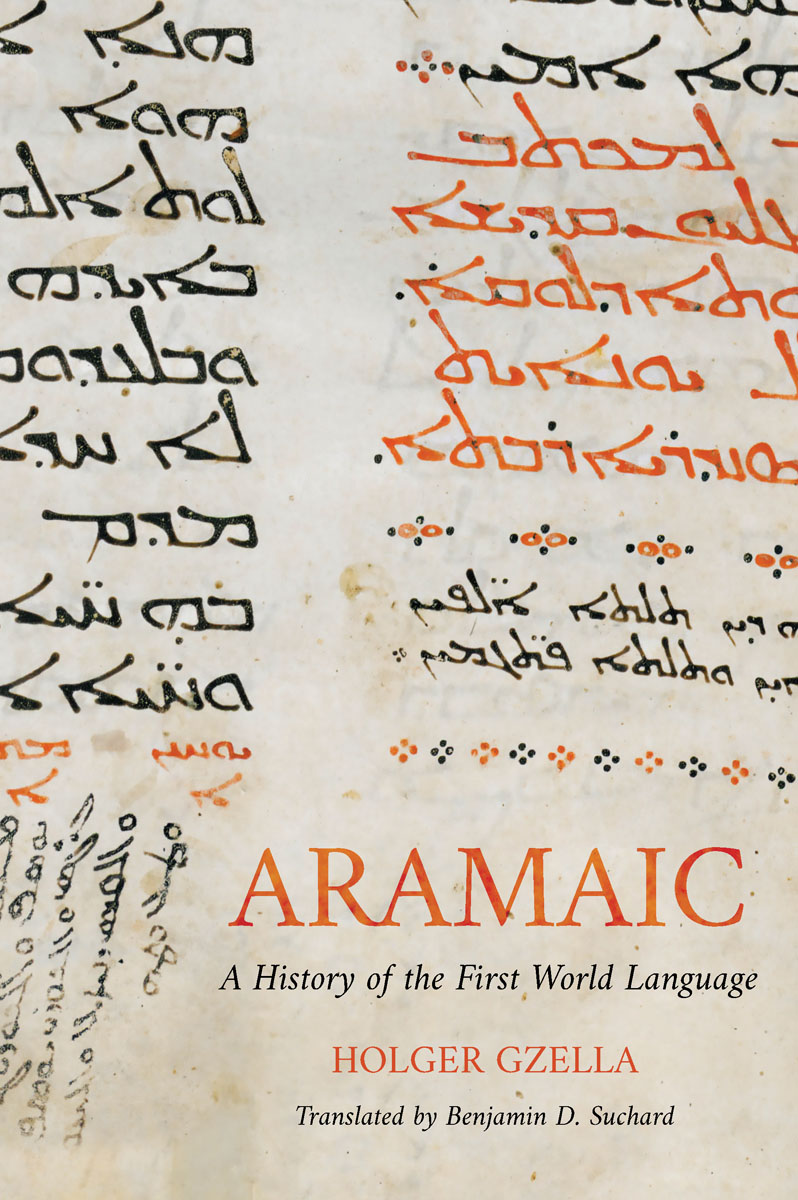


The Eerdmans Language Resources series is a collection of textbooks, readers, reference books, and monographs pertaining to languages commonly used in biblical and theological studies. In these volumes, students and scholars will find indispensable help in understanding and mastering Hebrew, Aramaic, Greek, and other languages.
Other ELR Titles
N. Clayton Croy, A Primer of Biblical Greek
S. R. Driver, A Treatise on the Use of the Tenses in Hebrew and Some Other Syntactical Questions
William L. Holladay, A Concise Hebrew and Aramaic Lexicon of the Old Testament
Page H. Kelley and Timothy G. Crawford, Biblical Hebrew: An Introductory Grammar, 2nd ed.
Page H. Kelley, Terry L. Burden, and Timothy G. Crawford, A Handbook to Biblical Hebrew: An Introductory Grammar, 2nd ed.
William Sanford Lasor, Handbook of Biblical Hebrew
Wm. B. Eerdmans Publishing Co.
4035 Park East Court SE, Grand Rapids, Michigan 49546
www.eerdmans.com
Original title De eerste wereldtaal: De geschiedenis van het Aramees
2017 Holger Gzella
First published in 2017 by AthenaeumPolak & Van Gennep, Amsterdam
English translation
2021 William B. Eerdmans Publishing Co.
All rights reserved
Published 2021
Printed in the United States of America
27 26 25 24 23 22 21 1 2 3 4 5 6 7
ISBN 978-0-8028-7748-2
This book was published with the support of the Dutch Foundation for Literature, the Leiden University Fund / Fonds Van Trigt, and the Stichting Studiecentrum voor Judaca en Hebraca Dr L. Fuks.

Library of Congress Cataloging-in-Publication Data
Names: Gzella, Holger, 1974 author. | Suchard, Benjamin D., translator.
Title: Aramaic : a history of the first world language / Holger Gzella ; translated by Benjamin D. Suchard.
Other titles: Eerste wereldtaal. English.
Description: Grand Rapids, Michigan : William B. Eerdmans Publishing Company, 2021. | Original title De eerste wereldtaal: De geschiedenis van het Aramees, 2017 Holger Gzella. First published in 2017 by AthenaeumPolak & Van Gennep, Amsterdam. | Includes bibliographical references and index. | Summary: A comprehensive history of the Aramaic language, from its first attestations around 1000 BCE to the modern dayProvided by publisher.
Identifiers: LCCN 2020052275 | ISBN 9780802877482 (hardcover)
Subjects: LCSH: Aramaic languageHistory.
Classification: LCC PJ5201 G9413 2021 | DDC 492/.2dc23
LC record available at https://lccn.loc.gov/2020052275
CONTENTS
PREFACE
The existence of this book is as unexpected as Aramaics ascent to a world language. Quite untypically for a scholarly monograph, it was originally published in Dutch under the title De eerste wereldtaal: De geschiedenis van het Aramees in 2017, and in its second printing in 2019, but a surprising amount of media coverage prompted author and publisher to explore the feasibility of an English edition. Eerdmans was an obvious choice given the subject matter, the pleasant collaboration on the English version of the same authors Aramaic volume in the Theological Dictionary of the Old Testament, and the roots of the company in the Netherlands. I am very grateful to Anita Eerdmans for welcoming this project right from the outset and to the editors involved at various stages for seeing it through with characteristic thoroughness. Dr. Benjamin D. Suchard was the ideal translator; the text is as faithful to the original as it can be, while the many explanations specifically geared toward a Dutch-speaking audience have been efficiently localized. Substantial grants from the Dutch Foundation for Literature, the Leiden University Fund/Fonds Van Trigt, and the Stichting Studiecentrum voor Judaca en Hebraca Dr L. Fuks made the work possible in the end.
The purpose remains unchanged: to free Aramaic from an ancillary role in the shadow of the Hebrew Bible and to unveil its contribution to the formation and exchange of ideas, customs, and traditions in the entire Near East. Being the primary medium of law, administration, and religious literature between the period of the ancient world empires and the rise of Islam, Aramaic united peoples and cultural groups of diverse origins and left them a lasting heritage. Owing to its fragmentation across different academic fields, however, the unifying force that consists in its linguistic history often remains opaque; the present book envisages to trace the continuity of Aramaic through shifting political and social conditions.
As I still read, much of the night, the upcoming English edition provided a timely opportunity to incorporate a number of bibliographic updates and several other minor improvements. During the process, I went south in winter and am especially grateful to the Ludwig Maximilian University of Munich and the Faculty of Catholic Theology for creating a work environment that is as pleasant, inspiring, and hospitable as one could possibly imagine.
H OLGER G ZELLA
Munich, on the Feast of St. Ignatius of Loyola 2020
ABBREVIATIONS AND SYMBOLS
As | Syriac inscriptions in Han J. W. Drijvers and John F. Healey. The Old Syriac Inscriptions of Edessa and Osrhoene: Texts, Translations, and Commentary. Leiden: Brill, 1999 (cited according to number). |
CHA | A Cultural History of Aramaic: From the Beginnings to the Advent of Islam. Holger Gzella. Leiden: Brill, 2015. |
COS | The Context of Scripture. Edited by William W. Hallo and K. Lawson Younger. 4 vols. Leiden: Brill, 19972018 (cited according to volume and page). |
DJD | Discoveries in the Judean Desert. Oxford: Clarendon, 19552010 (cited by volume editor and number, not volume title). |
H | Inscriptions from Hatra in Klaus Beyer. Die aramischen Inschriften aus Assur, Hatra und dem brigen Ostmesopotamien (datiert 44 v. Chr. bis 238 n. Chr.). Gttingen: Vandenhoeck & Ruprecht, 1998 (cited according to number). |
KAI | Kanaanische und aramische Inschriften. Edited by Herbert Donner and Wolfgang Rllig. 3 vols. Wiesbaden: Harrassowitz, 19662002 (cited according to the number of the relevant inscription). |
PAT | Palmyrene Aramaic Texts. Delbert R. Hillers and Eleonora Cussini. Baltimore: Johns Hopkins University Press, 1996 (cited according to the number of the relevant inscription). |
TAD | Textbook of Aramaic Documents from Ancient Egypt. Bezalel Porten and Ada Yardeni. 4 vols. Jerusalem: Hebrew University, Department of the History of the Jewish People, 19861999 (cited according to volume AD followed by the number of the relevant text). |
TDOT 16 | Holger Gzella, ed. Aramaic Dictionary. Vol. 16 of Theological Dictionary of the Old Testament. Edited by Heinz-Josef Fabry. Grand Rapids: Eerdmans, 2018. |
Next page
